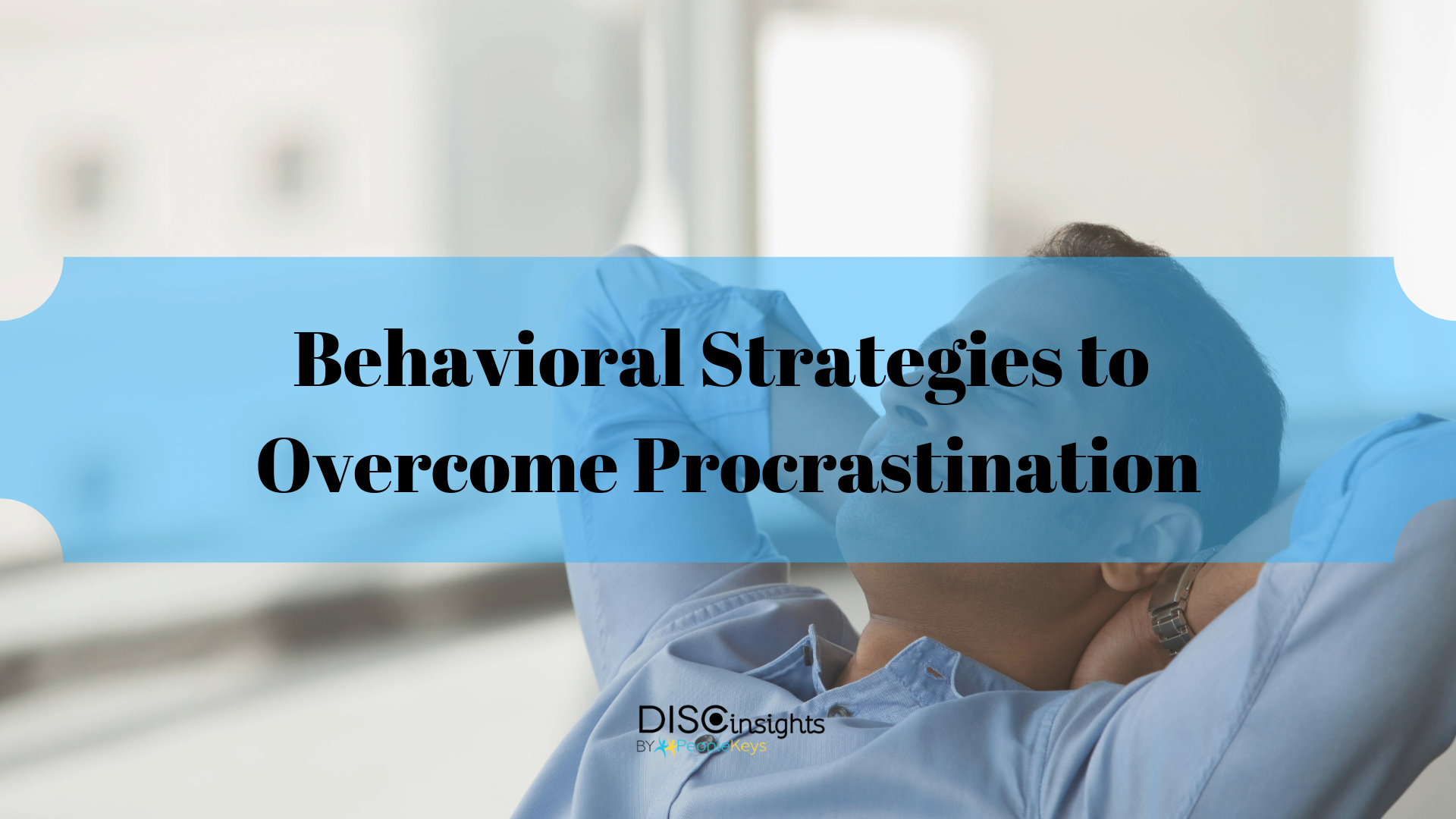- SHOP BY PRODUCT
- DISC TRAINING & CERTIFICATION TOOLS
- DISC RESOURCES
- BLOG
- SHOP BY PRODUCT
- DISC TRAINING & CERTIFICATION TOOLS
- DISC RESOURCES
- BLOG
- ALL ITEMS



Procrastination isn’t a disease, yet every student may suffer from it at one time or another. Those of us who are plagued by procrastination, myself included, know it has negative consequences, yet we still procrastinate willingly. The truth is, it affects everyone regardless of personality style. Why procrastinate? Because some tasks are out of our comfort zone, time consuming, vague, stressful or just plain, not fun. Who wouldn’t choose watching Instagram over writing a term paper? The more adverse the task, the more we procrastinate.
Researcher Tim Pychyl, author of Solving the Procrastination Puzzle, has studied this task aversion phenomena extensively and identified seven aspects of endeavors that trigger procrastination:
The problem is, too many homework activities fit these descriptions. But a “No pain…no gain” approach to school work will guarantee you a spot at the bottom of the class. Students who adopt this mentality may wind up being regretful, eventually leading to critical self-thoughts affecting one’s self esteem because deep down, you know you are “better than that”, and you are.
Some procrastination busting techniques may work better for certain DISC Personality Styles than others. Taking your DISC Profile could help you target your technique to your behavioral style.
For example, being a “high C Style” comes with advantages, but also disadvantages. I’ve learned to use my strengths of a “high task orientation” to my advantage when I need to push through procrastination.
The way I battle procrastination is through task lists and prioritizing.
Task Lists: As a C Style, I like to complete tasks, and aside from my difficulty focusing on just one task at a time, I am motivated by completing and checking off tasks. The mere line-through-it feeling releases some kind of C-style endorphins that manifest in a sense of completion and accomplishment, motivating me to tackle another task.
Prioritizing: Each day brings new dynamics, so each morning I sit down and write or type both ongoing and immediate tasks. The act of writing galvanizes it into my brain. Prioritizing which tasks are priority is important because what was a long term goal yesterday, may suddenly be urgent today. Conversely, what was urgent yesterday may be replaced by an even more urgent task today. Much can change within 24 hours. Sometimes, priorities need to be revised throughout the day as you learn about all the dynamics affecting you.
Since it takes time to form a habit, make sure you are creating good study habits that work with your behavioral, learning, and thinking styles so you can tackle procrastination in the way that works best for you.

© PeopleKeys. All Rights Reserved
WORKING DAYS/HOURS
Mon - Fri / 8:30AM - 5:00PM EST
